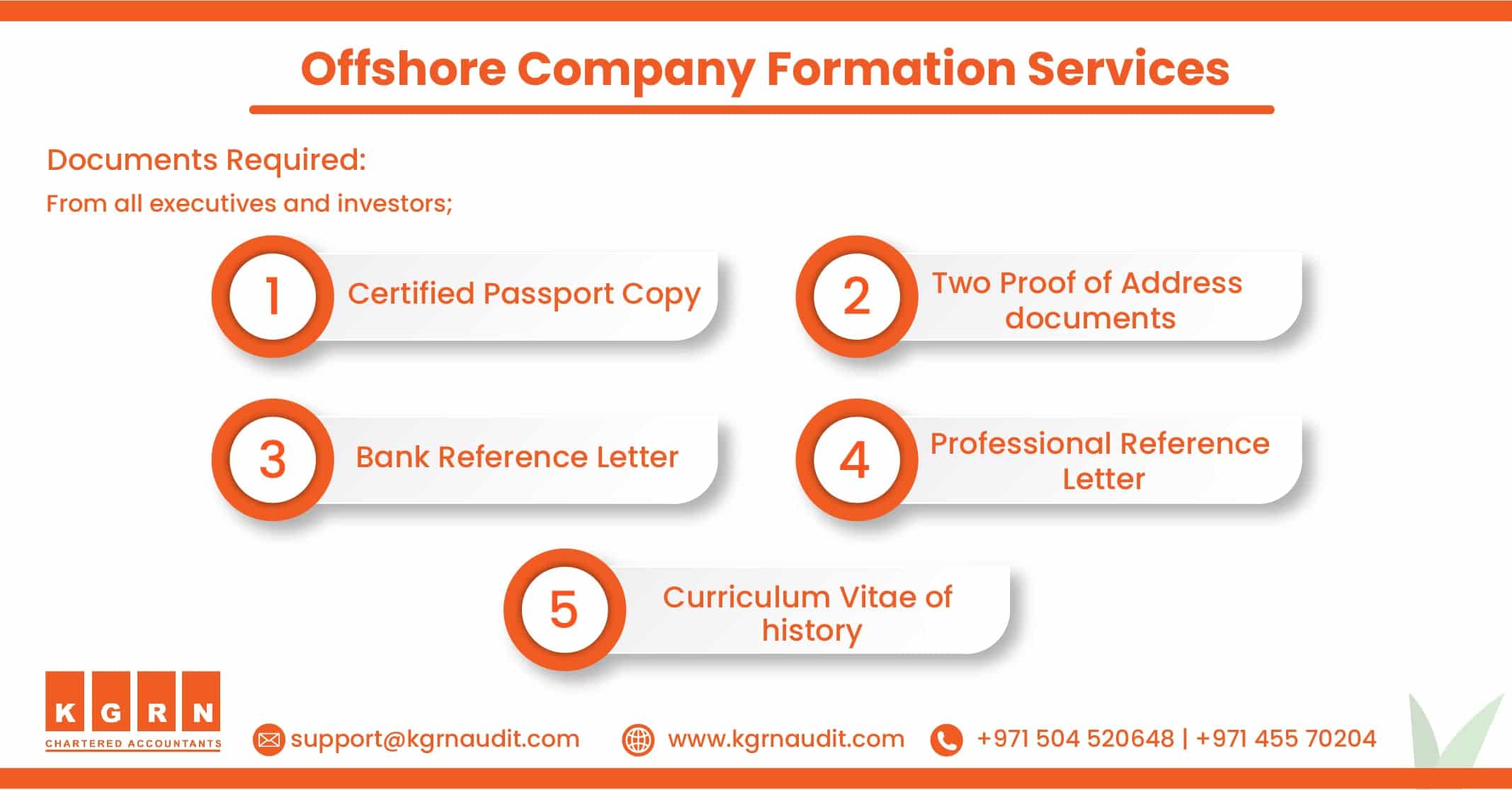Discover the Relevance of Offshore Company Formations for Global Business Development
Offshore business formations have actually come to be a necessary strategy for companies aiming for global expansion. These entities use considerable benefits, including tax obligation optimization and boosted personal privacy. The complexities surrounding legal and governing frameworks can be tough. Business need to browse these intricacies to optimize their potential. Comprehending the core aspects of overseas operations is crucial for those wanting to enhance their worldwide existence and secure their properties. What details benefits can companies get from this technique?

Comprehending Offshore Business Formations
Although lots of business owners look for possibilities for global company growth, understanding offshore company formations is vital for traversing this facility landscape. Offshore company development describes the process of signing up a service in a foreign territory, typically for factors such as tax obligation performance, regulatory benefits, and possession defense. Entrepreneurs must take into consideration different variables, consisting of the legal demands of the selected jurisdiction, the effects of local laws, and the advantages of various organization frameworks. In addition, knowledge of global treaties and conformity with global economic regulations are significant. Navigating this terrain needs careful planning and strategic insights, as the wrong decisions can bring about lawful problems or economic risks. By understanding the nuances of overseas firm formations, entrepreneurs can place their services efficiently for worldwide procedures, ensuring they are well-prepared to take advantage of on the chances provided by a global market.
Secret Benefits of Developing an Offshore Entity
Establishing an offshore entity supplies various benefits that can substantially enhance a service's functional effectiveness and economic performance. One considerable benefit is increased flexibility in taking care of international procedures. Offshore entities typically enable structured procedures that facilitate quicker decision-making and responsiveness to market changes (offshore company formations).Additionally, companies can get to global markets much more easily, leveraging regional expertise and resources that may not be offered in their home nation. This can result in boosted competitiveness and innovation.Furthermore, establishing an overseas firm can give improved personal privacy and privacy for owners and stakeholders. This security can aid secure delicate info from potential competitors.Lastly, businesses might experience minimized regulative problems and compliance expenses, permitting them to allot sources more properly. On the whole, these vital advantages make overseas entities a tactical selection for services going for international growth and enhanced functional performance

Tax Optimization Methods Via Offshore Structures
Offshore frameworks not just boost functional flexibility and accessibility to global markets yet also existing considerable opportunities for tax optimization. Services can leverage desirable tax obligation territories to reduce their general tax concern, enabling reinvestment and growth. By establishing an offshore business in a tax-efficient region, companies can take advantage of minimized company tax prices, tax obligation exceptions on certain sorts of income, and boosted possession protection.These frameworks can facilitate tax obligation planning methods such as earnings shifting, where profits are assigned to low-tax jurisdictions, and the use of holding firms to handle returns and nobilities efficiently. Furthermore, utilizing offshore accounts can enhance cross-border deals, minimizing withholding tax obligations and enhancing capital.
Enhancing Privacy and Confidentiality in Business Workflow
How can companies successfully safeguard their delicate information while steering via the intricacies of worldwide procedures? Offshore firm developments give a critical opportunity for improving personal privacy and confidentiality in organization tasks. By establishing entities in territories with solid personal privacy regulations, business can restrict the direct exposure of their monetary and operational details. This not only shields proprietary information but also alleviates threats linked with information violations and unauthorized disclosures.Utilizing overseas structures allows companies to maintain privacy in ownership and deals, which is crucial in affordable markets. In addition, these developments commonly give sophisticated data security regulations, making sure that sensitive info is shielded from prying eyes.Employing durable safety and security steps, such as encryption and safe communication see post channels, better enhances the privacy of organization procedures. By incorporating these approaches, business can with confidence browse the international landscape while preserving their vital info and sustaining an affordable edge.
Browsing Lawful and Regulative Factors to consider for Offshore Firms
Maneuvering the complexities of worldwide business calls for a keen understanding of the governing and legal structures that control offshore companies. These structures differ considerably throughout territories, requiring cautious evaluation to guarantee conformity. Company owner need to be aware of regional laws regarding taxes, reporting responsibilities, and company administration to stay clear of lawful pitfalls.Additionally, policies surrounding anti-money laundering (AML) and know-your-customer (KYC) techniques play a crucial duty in keeping the authenticity of offshore entities. Failing to stick to these laws can lead to extreme fines, consisting of criminal charges.Engaging with legal specialists who focus on offshore business formation is typically suggested, as they can browse the intricate landscape of global law. By staying educated concerning the developing regulative setting, organizations can purposefully take advantage of offshore frameworks to optimize procedures while decreasing dangers. Eventually, a complete understanding of lawful considerations is essential for effective international development.
Frequently Asked Questions
For how long Does It Take to Establish an Offshore Firm?
The duration to establish an overseas firm varies by territory, normally varying from a couple of days to a number of weeks. Aspects affecting this timeframe include specific regulatory needs, documentation prep work, and the efficiency of neighborhood authorities.
What Are the Expenses Related To Offshore Company Development?


Can People From Any Nation Type an Offshore Company?
People from numerous nations can without a doubt develop offshore firms. Certain policies, demands, and constraints might differ by territory, demanding comprehensive study to ensure compliance with local regulations and global criteria before continuing.
Exist Any Kind Of Ongoing Compliance Requirements for Offshore Business?
Recurring conformity demands for overseas firms differ by jurisdiction. Generally, these include yearly filings, tax obligation affirmations, and preserving accurate records. Failure to comply can cause fines, making adherence necessary for company sustainability and legal standing.
How Can I Discover a Respectable Offshore Company?
To discover a reputable overseas company, one should investigate online testimonials, validate credentials, and find out look for recommendations from relied on company affiliates. Additionally, contrasting services and rates can assist assure a reliable option for overseas company development. Offshore business developments have ended up being a crucial method for services intending for worldwide expansion. Numerous entrepreneurs seek chances for international company expansion, understanding overseas business developments is important for helpful site traversing this facility landscape. Offshore company development refers to the process of registering an organization in an international territory, typically for factors such as tax efficiency, regulatory benefits, and possession security. By developing an offshore firm in a tax-efficient region, organizations can benefit from reduced company tax obligation rates, tax exceptions on particular kinds of earnings, and boosted possession protection.These frameworks can help with tax planning approaches such as profit moving, where revenues are designated to low-tax territories, and the usage of holding companies to manage dividends and royalties effectively. Steering the intricacies of global service requires an eager understanding of the regulative and lawful frameworks that regulate overseas firms.